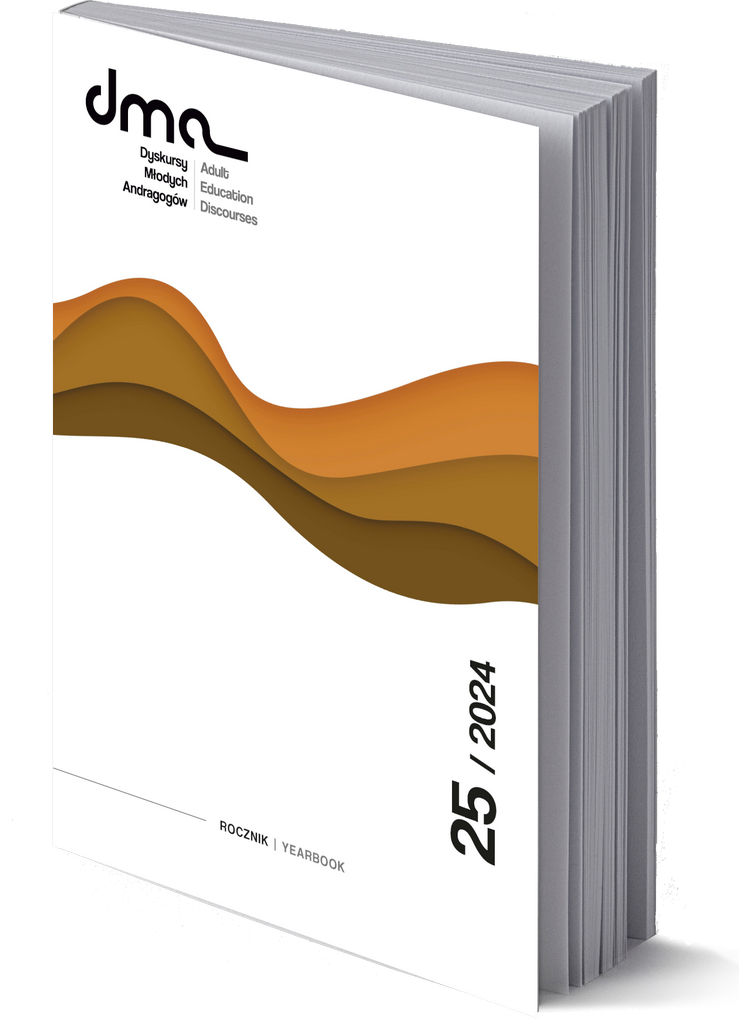Abstrakt
The article relies on theory and research to argue that the concept of cultural heritage should be incorporated into adult education and learning studies. The focus on this issue has been prompted by a paradigmatic change in the way that researchers and practitioners in the cultural heritage field understand and define this phenomenon. Particularly relevant in this context is addressing and highlighting the links between cultural heritage and identity (formation), as well as re-defining the social values and meanings of cultural heritage. In this approach, the central role of adult learning (as a process, a strategy, a mechanism and a trajectory) is indispensable for the new perspective on ‘heritage’ to be recognized and applied. Adult education researchers and practitioners have long been involved in cultural education, promotion of social activism and museum education, but a new opening and radical change in “cultural heritage” sciences enable adult education researchers, among other scholars, to join the interdisciplinary debate on so-called Heritage Studies. The argument also draws on the partial research findings of the EU_CUL project partners, which showcase the interconnectedness of learning, heritage and community and leave no doubt that the past values and meanings of cultural heritage must be renegotiated for the present and the future.
Bibliografia
Brookfield, S.D. (2005) The power of critical theory for adult learning and teaching. Cleveland: Open University Press.
CM/Rec (2017) Recommendation of the Committee of Ministers to Member States on the European Cultural Heritage Strategy for the 21st Century [online]. Available at: https://rm.coe.int/16806f6a03 [4.11.2023].
COE (2018) Council of Europe, European Cultural Heritage Strategy for the 21st Century: Facing Challenges by Following Recommendations [online]. Available at: https://rm.coe.int/european-heritage-strategy-for-the-21st-century-strategy-21-full-text/16808ae270 [4.11.2023].
van den Dries, M.H. & Kerkhof, M.J.H. (eds.) (2021) Inspirational practices in cultural heritage management: Fostering social responsibility. Wrocław: Wydawnictwo Naukowe DSW.
EUCUL (2021) Exploring European Cultural Heritage for Fostering Academic Teaching and Social Responsibility in Higher Education [online]. Available at: https://www.eucul.com [4.11.2023].
Evans, R., Kurantowicz, E. & Lucio-Villegas, E. (eds.) (2022) Remaking communities and adult learning. Leiden: Brill.
Giddens, A. (2001) Nowoczesność i tożsamość. Warszawa: PWN.
Gołębniak, B.D. (2022) Ekspansja uczenia się? Co z nauczaniem?.Wrocław: Wydawnictwo Naukowe DSW.
Jarvis, P. (2009) Learning to be a person in society. London/New York: Routledge.
Johnston, R. (2003) Adult learning and citizenship: Clearing the ground. In: P. Coare & R. Johnston (eds.) Adult learning, citizenship and community voices. Leicester: NIACE, 1-21.
Kurantowicz, E. (2012) O społecznym uczeniu się we współczesnym dyskursie andragogicznym. Wątpliwości zebrane. Dyskursy Młodych Andragogów [online], 13, 13-20. Available at: https://doi.org/10.34768/dma.vi13.203.
Kurantowicz, E. (ed.) (2022) Uchodźcy pośród nas. Pomaganie w perspektywie interdyscyplinarnej [online]. Wrocław: Wydawnictwo Naukowe DSW. Available at: https://doi.org/10.34862/ek22-1212.
Kurantowicz, E. & Reut, M. (eds.) (2020)Cultural heritage between sectors: Mapping the cooperation of universities and social partners. Wrocław: Wydawnictwo Naukowe DSW.
Lechuga Jiménez, C. & Kurantowicz, E. (eds.) (2021)Together for cultural Heritage: Booklet of recommendations for social partners.Wrocław: Wydawnictwo Naukowe DSW.
Malewski, M. (2010) Od nauczania do uczenia się. O paradygmatycznej zmianie w andragogice. Wrocław: Wydawnictwo Naukowe DSW.
Murzyn-Kupisz, M. (2012) Dziedzictwo kulturowe a rozwój lokalny. Kraków: Wydawnictwo Uniwersytetu Ekonomicznego.
Nizińska, A. & Persson, M. (eds.) (2021)Collaborative heritage learning: Course syllabus. Wrocław: Wydawnictwo Naukowe DSW.
Rogers, A. (2003) What is the difference? A new critique of adult learning and teaching. Leicester: NIACE.
Shaw, M. & Mayo, M. (2016) Class, inequality and community development: Editorial introduction. In: M. Shaw & M. Mayo (eds.) Class, inequality and community development. Bristol: Policy Press, 3-22.
Smith, L. (2006) Uses of heritage. New York: Routledge.
Tett, L. (2016) Researching and sharing power with a learning community. In: R. Evans, E. Kurantowicz & E. Lucio-Villegas (eds.) Researching and transforming adult learning and communities. Rotterdam: Sense Publishers, 155-164.

Utwór dostępny jest na licencji Creative Commons Uznanie autorstwa 4.0 Międzynarodowe.
Copyright (c) 2024 Dyskursy Młodych Andragogów

 /
/  Język
Język
